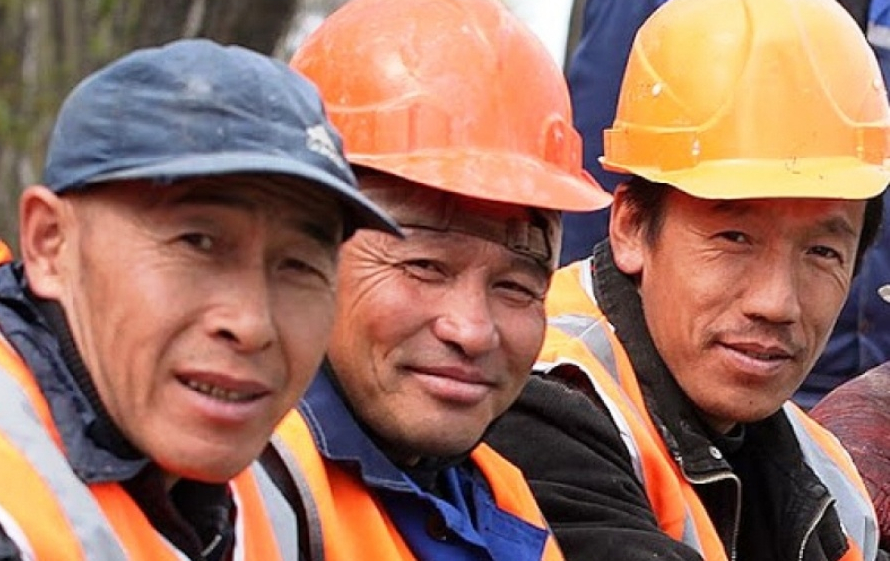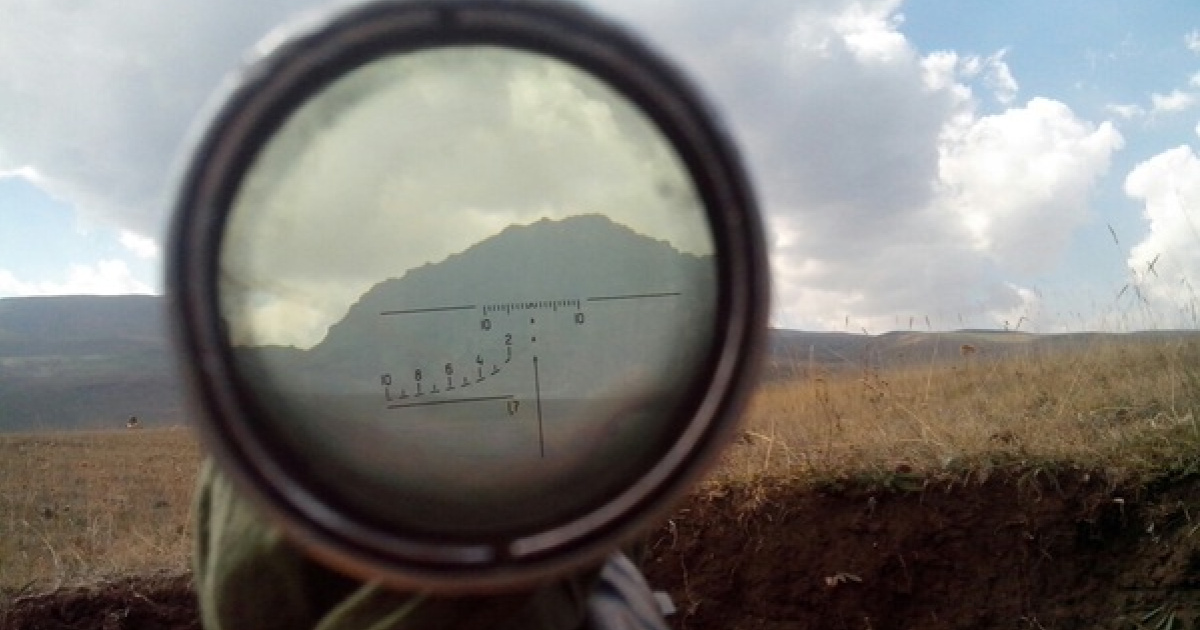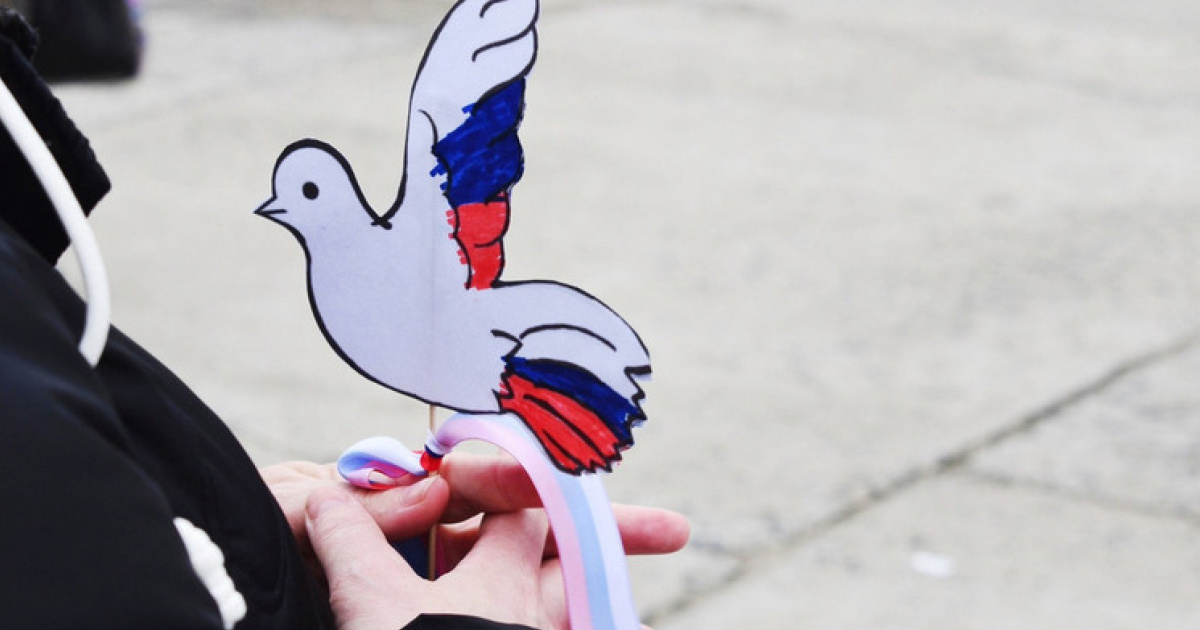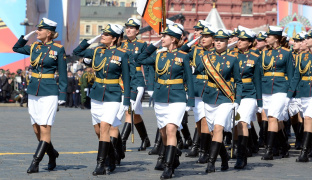At the present point in time, Russia is more interested in the conflict in the East of Ukraine than in restoring Ukrainian sovereignty over the territories it has occupied, even if Kyiv complies with the Minsk agreements and gives them a "special status". Putin understands the inability of Kyiv to fulfill the political part of the Minsk agreements against the background of incessant armed and information provocations by the puppet "republics" of Donbass. However, he does not agree to the introduction of the UN peacekeepers to the entire territory, now controlled by Moscow, what would create conditions for implementation of the political conditions of the Minsk agreements. This leads to the conclusion that Putin's true goal is not even the legitimization of the pro-Russian enclave, but the maximum weakening of Ukraine (both economic and domestic political) by means of war and Minsk agreements. The goal of such a weakening is probably the "unification", - as Putin expressed, - of "brotherly peoples", that is, the establishment of complete control over Ukraine.
In this context, Moscow intensifies its attempts to create zones of influence in Asia in order to compensate for losses from Western sanctions and circumvent them, search for new allies, and make an effort to split the unity of NATO and EU allies. The information obtained makes it possible to predict the activation of Russia in Afghanistan.
Meanwhile, in the puppet "republics" of Donbass, controlled by Moscow, the active preparation for the forthcoming autumn 2018 illegal elections of the "heads of republics" has already started. It is expressed in the struggle for financial flows and excesses against political opponents. These processes are fully controlled by Moscow and aimed at giving subjectness to its puppets, as well as at pressure on Ukraine and its international partners. This also confirms Moscow's disinterest in resolving the military conflict in the Donbass even at the cost of implementing the political part of the Minsk agreements.
Natural reaction of the democratic West to Moscow's attempt to strengthen its influence in the world by maintaining and creating new flashpoints is the use of Kremlin-created conflicts against itself. That is, using them as a basis for uncompromising increase of pressure on Russia with the aim of weakening Putin's regime and subsequent democratization of the country. Otherwise, the unpunished aggression of Russia will only increase.
Russian factor
Diplomatic efforts of the USA and Ukraine to introduce the UN peacekeeping mission into the territory of Donbass with the aim of creating a safe environment for political settlement of the conflict are likely to be blocked by Russia in the UN Security Council. President Putin's speech at the Valdai Discussion Club and subsequent activities of Russian officials show that Russia sees the UN peacekeepers only as a security mission for the OSCE observers and does not intend to give Kyiv control over 400 kilometers of its border with the Russian Federation in the occupied part of Donbass. Moscow even refused to extend the OSCE mandate to monitor this section of the border. This means that Moscow intends to retain its control over the Donbass even after implementation of the Minsk agreements. This is possible thanks to the "special status" of the region, envisaged by them, and its "special" relations with Russia. Putin compared consequences of the possible control of Ukraine over the border and the occupied territory with the events in Srebrenica, where ethnic cleansing occurred, despite the fact that there are no grounds for such cleansing, - neither national nor religious, - in the Donbass.
However, the Russian President is very much aware that against the background of permanent war and Moscow's increase of the "DNR"-"LNR" subjectness, implementation of the Minsk agreements by Ukraine is simply impossible. "Now imagine that the President of Ukraine will decide to make at least some step in pursuance of the Minsk agreements – I cannot imagine how to do it", - he stated. But at the same time, Putin continues to insist on the implementation of this unreal, - even in his opinion, - scenario.
The main argument of the U.S. Special Representative Kurt Volker in favor of introducing the peacekeepers into Donbass is that they will create the necessary security environment for implementation of the political part of the Minsk agreements, which Moscow insists on implementing. But Russia, seemingly interested in this, does not agree to the creation of such a mechanism for establishing peace. This suggests that the Kremlin prefers to keep the conflict, since the preservation of the conflict weakens Ukraine economically and politically more than its ending even on Moscow's terms. Putin understands that for the time being, Ukraine is strong enough, and its mood is too anti-Russian, so that even giving the Donbass a "special status" will not make it an instrument of Russian influence throughout Ukraine. He consciously uses the Minsk agreements as a mechanism for weakening Ukraine, and not for a peaceful settlement. When Kyiv gets so weak that it will have to agree with everything that Moscow offers (as it was when signing the Minsk agreements), then the Donbass can really become an instrument for achieving the Kremlin's strategic goal. Putin also talked about this goal at the Valdai Discussion Club, expressing confidence that "Sooner or later it will happen - the unification..." of "brotherly peoples". And he hopes to achieve this goal with the help of Western countries, which, in his opinion, should put pressure on Kyiv. Therefore, the initiative with peacekeepers on the Russian-Ukrainian border is doomed to failure, and the Donbass will remain a permanent flashpoint.
At the same time, Moscow levels consequences of Western sanctions by the expansion of cooperation with South Korea, China and other Asian countries.
The Kremlin sees no reason for any "concessions" to Kyiv in the issue of Ukraine's resumption of territorial integrity, but also prepares new geopolitical springboards for aggression.
At this stage, Moscow provided permanent managed chaos (the war of "all against all") in Syria and the preservation of power of Bashar al-Assad. In Russia's opinion, it guaranteed itself the preservation of military bases in Syria, the prevention of oil and gas pipelines from Qatar to the EU, the pressure on Turkey through the Kurdish issue and a platform for possible agreements with the USA. Now the Kremlin has decided to expand the range of military operations and "political chaos" to the Middle East – Afghanistan should become another goal.
The campaign's goal is to help the Taliban to resume a large-scale confrontation in Afghanistan by the participation of the Russian Armed Forces contingent and the Russian "mercenaries". This is done with the following objectives:
-
resumption of geopolitical influence in the region;
-
improvement of conditions for the actual military and political absorption of post-Soviet republics in Central Asia (Tajikistan, Uzbekistan, Kyrgyzstan);
-
creation of opportunities to improve relations with Pakistan;
- gradual exclusion of the USA from the region;creation of a platform for possible negotiations with the United States with possible "bargaining", including on the Ukrainian issue.
We registered that as early as 2015, Russia's military commissariats privately searched for former servicemen (mostly land forces) to mobilize them for Afghanistan. It seems that the Russian Federation had not started the Afghan campaign earlier in connection with elections in the USA, certain setbacks in relations with the EU and unexpected problems in Ukraine (the actual refusal of the Ukrainian society to recognize capitulation on the Minsk agreements).
At the recent congress of the Union of Volunteers of Donbass in Rostov-on-Don, which was attended by Putin's aide Vladislav Surkov, the idea was voiced that after the Syrian campaign is over, "the volunteers will have closer goals and tasks". Most of those present perceived this as a hint at escalation of hostilities in Ukraine, but this could also be a hint at Afghan direction, especially because the veterans of the Afghan war became the most active part of the Russian volunteer movement in the Donbass.
Also, Russian-Turkish relations can have a serious impact on the situation in Ukraine.
At the personal request of President Erdogan, Putin handed over two leaders of the Crimean Tatar people to Turkey. They are citizens of Ukraine, who had previously been arrested and sentenced in the annexed Crimea. Nevertheless, after the visit of the Prosecutor General of Ukraine to Ankara, Turkey made an unexpected and painful move for the Russian Federation - it banned all ships "arriving from the Crimea and its ports" to enter Turkey.
Nevertheless, according to some signs, such policy is an element of foreign policy tactics, which pursues exclusively Turkish national interests and can vary, depending on the position and concessions of the Russian Federation in certain issues. Ukraine's interests can be subject to bargaining even without the participation of Ukraine itself.
In turn, Moscow decided to build relations with the USA on the principle of "friendship/neutrality with Trump, but the war with America".
Influence of Ukraine's internal policy on the situation in the Donbass
Escalation of the domestic political situation in Ukraine, which can lead to a serious parliamentary crisis, makes impossible the solution of problem of Russian occupation "by peaceful means" even theoretically (that is, by legitimizing the pro-Russian enclave in the Donbass), at least until the next parliamentary elections.
As of today, the Ukrainian parliament is surrounded by a tent city with ATO veterans, who demand a real political reform (the law on proportional election system, the law on impeachment…).It is not numerous, because it is a break in the parliamentary session now, but it can become a base for serious pressure on deputies at any time. This opportunity was especially intensified after Interior Minister Arsen Avakov he had removed the "protection" of the tent city, consisting of police and national guardsmen, who surrounded the protesters with a dense ring. Avakov did this after it became known about the detention of his son by the National Anti-Corruption Bureau of Ukraine. People's Front parliamentary faction, one of the leaders of which is Avakov, considers the detention of the minister's son an attack on him on the part of President Poroshenko. This puts the unity of the ruling parliamentary coalition in jeopardy.
In this context, any government's actions to implement the political part of the Minsk agreements are fraught with a serious political crisis with the likelihood of a power projected scenario.
Moreover, our expectations about the increase in terrorist and sabotage activity of Russia and the puppet "DNR-LNR" in the territory of Ukraine, expressed in previous reports, are being fulfilled. At the end of October, a well-known volunteer of Chechen origin Amina Okuyeva was killed in Kyiv. The unknown persons fired at her car, where she was together with her husband Adam Osmayev. Osmayev was previously accused by the Russian Federation of organizing an attempted assassination of Putin and is considered a personal enemy of Chechen President Ramzan Kadyrov. The life of Osmayev was already attempted in the summer. The killer was wounded and detained. He is a Russian citizen, whom the media call a personal killer of Ramzan Kadyrov.
Also, the forecast that the decrease in activity at the front will lead to the transition of Russian-Ukrainian war to the form of terrorist and sabotage attacks is confirmed by the information of Ukrainian law-enforcement agencies that special centers for the organization of terrorist acts in Ukraine have been created and operate in the uncontrolled territory of the Donbass. These centers are coordinated by career officers of the special services of the Russian Federation. The citizens of Ukraine are trained in them. It may happen that these trained personnel can later be used by Russia not only on the territory of Ukraine.
Situation in the "DNR-LNR"
There is an escalation of the armed conflict, as well as activation of the sabotage and reconnaissance groups throughout the front line in the Donbass during the reporting period. This can be explained by the rotation of military units by both parties, what forces the newly arrived military personnel to conduct reconnaissance of enemy positions by fire. This fact is confirmed by the idea of the deputy head of the OSCE monitoring mission Alexander Hug, who stated that "the escalation is inevitable" because the forces and resources are not withdrawn, and in some places, on the contrary, are dangerously close.
The possibility of escalation is also discussed by the participants of convention of the Union of Volunteers of Donbass, which was held in Rostov-on-Don in October. A member of the Council of commanders of the Union, ex-commander of the "Prizrak" Brigade Yuriy Shevchenko said in an interview with the media that "at this council, the assistant to the President of Russia Vladislav Surkov "internally" told about the nuances of the current situation and his negotiations with the U.S. representative in Belgrade… I can only say one thing — we go on, we do not give up".
In turn, the tension continues to grow along the "LDNR" line as well – the OSCE Monitoring Mission. The first deputy head of the mission Alexander Hug accused the leadership of the "republics" of unwillingness to meet with him. And they demand from him compliance with the protocol and treat them as "heads of states".
"For some reason, Mr. Hug considers it beneath his dignity to formally notify about the desire of visit to the heads of state", - the "Minister" of Foreign Affairs of the "LNR", representative of Luhansk in the Tripartite Contact Group in Minsk Vladislav Danego stated.
Since Russia insists that the UN peacekeepers should fulfil only the function of protecting the OSCE, it can be assumed that in order to give reasons for its position, the Kremlin can provoke deterioration in security environment for the work of the OSCE personnel in the occupied territory of Donbass.
Another factor that could affect the situation in the Donbass was the actual start of election campaign in the "DNR" for the elections of the "head of republic", which are planned for the autumn of 2018. The current leader of the "DNR" Alexander Zakharchenko and the former "Minister of State Security of the DNR", the creator of the Vostok Battalion Alexander Khodakovsky have already announced their participation in the elections. The latter is considered to be close to the Ukrainian oligarch Rinat Akhmetov, who is now the main business and political partner of Petro Poroshenko. Khodakovsky also enjoys the support of the Russian FSB. This makes him an advantageous candidate for Moscow to replace the odious Zakharchenko. However, it is unlikely that Khodakovsky would be acceptable for Ukraine, since he betrayed the oath in the spring of 2014, being an officer of the Security Service of Ukraine.
The beginning of election campaign was marked by the public release of compromising materials on each other. Also, Zakharchenko cut access to financial flows for other potential candidates. In particular, the "head of the People's Council of the DNR" Denis Pushilin was dismissed from the post of head of the executive committee of "The Donetsk Republic" social movement, headed by Zakharchenko. And the department of the closest associate of Zakharchenko, the "Minister of Incomes and Fees of the DNR" Timofieyev was able to receive 30% of all fines and penalties that it imposes on business.
It should be noted that Khodakovsky retains his influence over the former fighters of the Vostok Battalion, which now is the main defence of the "DNR" at the front. This makes it possible to forecast an aggravation on the line of demarcation in autumn of 2018, which Zakharchenko could provoke, so that Khodakovsky's people could not leave their positions and be used by Khodakovsky in the internal political struggle.
Meanwhile, violations of human rights continue to continue to persist in the occupied territories. A 21-year-old football fan Vladyslav Ovcharenko was sentenced to 17 years of imprisonment in Luhansk for holding Ukrainian flag and publicly burning the "flag of the LNR" in the center of the city.
Another important aspect of activity of the puppet formations of Russia is the stimulation of separatist sentiments in Europe. It is known that the main foreign "partners" and guests of the "DNR" and the "LNR" are the right-wing parties and separatist organizations, supported by Russia, which not only promote the interests of the puppet separatists of Donbass in their countries, but also exchange experiences, provide mutual public support, etc. Russia will certainly use this mechanism to undermine stability in the European Union.
So, after the declaration of independence by Catalonia, the "Minister" of Foreign Affairs of the "LNR" Vladislav Danego declared Luhansk's interest in the dialogue with Barcelona, regarding the mutual recognition of the "republics'" independence.
CONCLUSION:
Russia once again, but at the highest level, demonstrated its unwillingness to resolve the conflict in the Donbass and to stop attempts to destroy Ukrainian sovereignty. Perhaps, Western sanctions weaken Russia, but they do not force it to change its intentions and actions regarding Ukraine, as the welfare of Putin and his entourage has reached a level where it no longer depends on the economic situation in Russia. Russia and Putin's regime are independent of each other.
If in the past, Putin placed a stake on Russia's energy power to achieve their geopolitical goals, nowadays, the Kremlin clearly prefers to use military and hacking tools. Moscow increases its international status, becomes an advantageous ally that can really influence the situation by creating military and political crises, and later participating in their resolution. This creates a situation of the Kremlin's interest in as much as possible destabilization in the zone of its interests. And this zone becomes wider. Tactics, when the West, instead of resolute reaction and obstruction tries to maintain relations with the Kremlin, only aggravates these crises and strengthens Moscow. This is confirmed by the experience of both Ukraine and Syria.
Centre for research of Donbass social perspectives
The review was prepared with the support of GPD Charitable Trust




